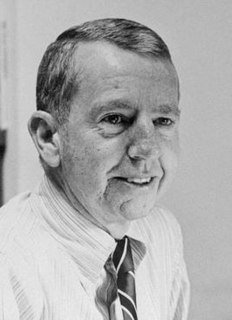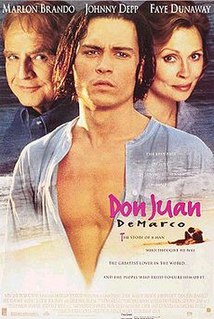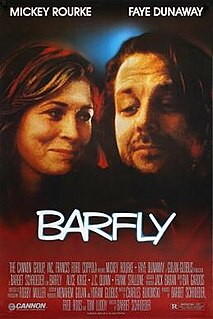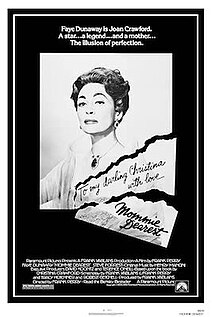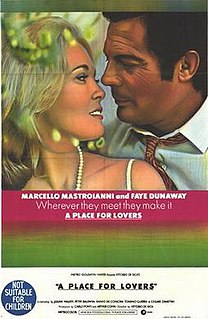| The Arrangement | |
|---|---|
 | |
| Directed by | Elia Kazan |
| Produced by | Elia Kazan |
| Written by | Novel/screenplay: Elia Kazan |
| Starring | Kirk Douglas Faye Dunaway Deborah Kerr Richard Boone Hume Cronyn |
| Music by | David Amram |
| Cinematography | Robert Surtees |
| Edited by | Stefan Arnsten |
Production company | |
| Distributed by | Warner Bros.-Seven Arts |
Release date |
|
Running time | 125 minutes |
| Country | United States |
| Language | English |
| Box office | $4 million (US/Canada rentals) [1] |
The Arrangement is a 1969 film drama directed by Elia Kazan, based upon his 1967 novel of the same title.

A film director is a person who directs the making of a film. A film director controls a film's artistic and dramatic aspects and visualizes the screenplay while guiding the technical crew and actors in the fulfilment of that vision. The director has a key role in choosing the cast members, production design, and the creative aspects of filmmaking. Under European Union law, the director is viewed as the author of the film.

Elia Kazan was a Greek-American director, producer, writer and actor, described by The New York Times as "one of the most honored and influential directors in Broadway and Hollywood history".

The Arrangement is a 1967 novel by Elia Kazan, narrated by a successful Greek-American advertising executive and magazine writer living in an affluent Los Angeles suburb who suffers a nervous breakdown due to the stress of the way in which he has lived his life – the "arrangement" of the title. In 1969 Kazan made it into a film. The Arrangement was a best-seller and garnered generally favorable reviews but it has been out of print since the 1980s.
Contents
It tells the story of a successful Los Angeles-area advertising executive of Greek-American extraction, Evangelos Arness, who goes by the professional name "Eddie Anderson." He is portrayed by Kirk Douglas.

Advertising is a marketing communication that employs an openly sponsored, non-personal message to promote or sell a product, service or idea. Sponsors of advertising are typically businesses wishing to promote their products or services. Advertising is differentiated from public relations in that an advertiser pays for and has control over the message. It differs from personal selling in that the message is non-personal, i.e., not directed to a particular individual. Advertising is communicated through various mass media, including traditional media such as newspapers, magazines, television, radio, outdoor advertising or direct mail; and new media such as search results, blogs, social media, websites or text messages. The actual presentation of the message in a medium is referred to as an advertisement, or "ad" or advert for short.
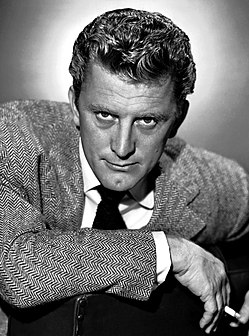
Kirk Douglas is an American actor, filmmaker, and author. A centenarian, he is one of the last surviving stars of the film industry's Golden Age. After an impoverished childhood with immigrant parents and six sisters, he had his film debut in The Strange Love of Martha Ivers (1946) with Barbara Stanwyck. Douglas soon developed into a leading box-office star throughout the 1950s, known for serious dramas, including westerns and war movies. During his career, he appeared in more than 90 movies. Douglas is known for his explosive acting style.
Eddie is suicidal and slowly having a psychotic breakdown. He is miserable at home in his marriage to his wife, Florence, played by Deborah Kerr, and with his career. He is engaged in a torrid affair with his mistress and co-worker Gwen (Faye Dunaway), and is forced to re-evaluate his life and its priorities while dealing with his willful and aging father (Richard Boone).

Deborah Jane Trimmer CBE, known professionally as Deborah Kerr, was a Scottish-born film, theatre and television actress. During her international film career, she won a Golden Globe Award for her performance as Anna Leonowens in the musical film The King and I (1956) and a Sarah Siddons Award for her performance as Laura Reynolds in the play Tea and Sympathy. She was also a three-time winner of the New York Film Critics Circle Award for Best Actress.

Dorothy Faye Dunaway is an American actress. She has won an Academy Award, three Golden Globes, a BAFTA, and an Emmy, and was the first recipient of a Leopard Club Award that honors film professionals whose work has left a mark on the collective imagination. In 2011, the government of France made her an Officer of the Order of Arts and Letters.

Richard Allen Boone was an American actor who starred in over 50 films and was notable for his roles in Westerns, including his starring role in the television series Have Gun – Will Travel.





